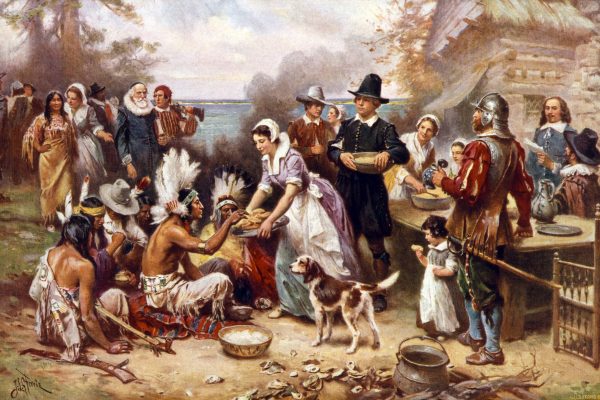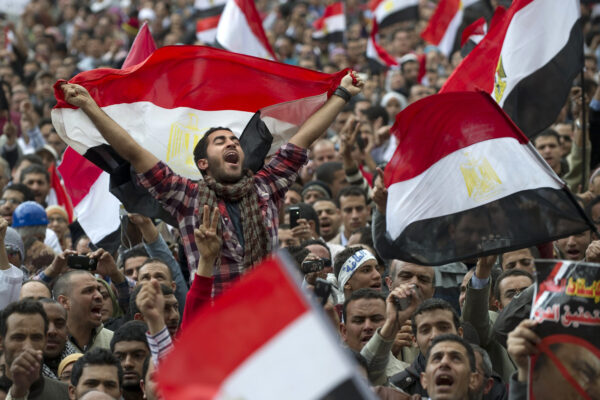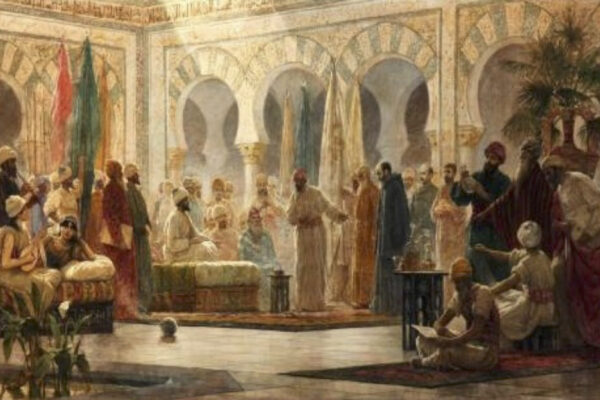Introduction
Leyla lived through the invasion of her home city Khorramshahr, but at a great price, she has lost members of her family and witnessed the destruction of the city that she was born in and loved greatly.
In his mind, Saddam had to find an enemy to destroy thus elevating his status among the neighbouring Arab monarchs.
The Iran-Iraq war started on the 22nd of September 1980 and lasted for eight years. It was the longest conventional war in the 20th century, making it one of the bloodiest in history. The estimated cost of the war has been put at approximately $1 trillion. In this report I will tell the story of Leyla from the day of occupation of her home city, to the loss of her brother recapturing the same city. In the course of the horrific war, Leyla lost her brother and subsequently father, whose graves she has never seen. I will ask her what strength she used in the suffering and why she never gave in to self-pity. The reason for my personal interest in Leyla’s story of survival is because she is my mother and the brother and father she lost are my uncle and grandfather.
Leading to invasion
My mother retold me a story that I am already familiar with. It has affected my family’s life dramatically. The Iran-Iraq war has brought nothing but suffering to everyone I know affected by it and my experience proved to me that there is only suffering from any war.
It was after the revolution of 1979 when the Iranian King Mohammed Reza Pahlavi fled from Iran, and Ayatollah Ruhollah Khomeini headed the Islamic revolution to power. On the 1st of December the Iranian citizens approved the new Islamic constitution in a referendum, and the rest of the world, especially the Arab monarchs stood up and took notice at a new phenomenon. Like any other revolution the new Iranian government and people took time to converge and settle. Saddam wanted to take advantage of the difficulties in the neighbouring country for his own benefit and push his own status among the Arab countries.

Saddam always believed he was the leader and successor of the Arabs, like Salahaddin Ayubi from the 12th century. In his mind, Saddam had to find an enemy to destroy thus elevating his status among the neighbouring Arab monarchs. His country was making tremendous profits from oil exports; he enjoyed a great degree of political and military freedom before the summer of 1980, whilst holding $30 billion in foreign currencies. After consulting the Saudi monarch on the 5th of August, Saddam started to plan his war with Iran. His plan consisted of invading the Khuzestan province (in the South West of Iran), capturing the major oil fields of Abadan and Masjid-e Suleiman (MIS), and placing a puppet government opposing the newly created Islamic Republic of Iran. He believed he could accomplish his plan within a month and succeed in total victory.
The day of invasion
On the way my father would stop and help others who were badly wounded, our car was filled with more than seven people by the time we reached my grandmother’s house.
Khorramshahr means the “Cheerful City” and has played an important part in the history of both Iran and Iraq. The town used to be named Muhammara and was ruled by the Muhaisin tribe. Its location has placed great importance on the town and its province. Half way through the Iran-Iraq war the town was nicknamed Khonin shahr, which means the “City of blood” because so many Iranian soldiers lost their lives trying to recapture it. As a major port of Iran, Khorramshahr was a prosperous city, with trade passing through it from all over the world. My father owned a mechanic garage in town and had recently finished building his first house. He got the best builders and architects to design and build the house that would be the only one in the area not to fall to a rouble through the destructive war.
Sandra Mackey writes: “At dawn on September 22nd, 1980, fifty thousand Iraqi troops hit four strategic junctions along the 730-mile-long Iran-Iraq border. While the infantry punched forward from the bleak mountain ranges of northern Kurdistan to the swamplands of oil-rich Khuzestan, Iraqi planes pounded Iran’s air fields and military installations.”(Mackey, 1996)
My father was at work and my mother along with us was at home like any other day. My mother tells me the moments of the invasion:
“It was just the end of the afternoon and I think I was in the kitchen; you and your brother were in the sitting room playing. I heard a very loud bang, but I thought it was construction workers in the area. I went out to see what was happening, then I realised people running away and smoke in the background of houses. Your father was on the porch shouting at me “get the kids, get the kids, there’s no time, quickly come back”. I was still unsure of what was happening and what all the fuss was about, but when I saw blood on your father’s hands I came to my senses, he shouted, ‘There has been an announcement on radio, the Iraqis are invading.'”
My mother had no time to change her clothes or take any valuables with her. She even left her wedding ring in our home because of the rush. She fled the house holding me and my brother, locked the front door and ran to my fathers’ car, not realising it would be almost two decades later before she would see her home again. The only place my family would be safe was in the centre of the city, where my grandmother lived and artillery shelling would not reach. On the way my father would stop and help others who were badly wounded, our car was filled with more than seven people by the time we reached my grandmother’s house. My father dropped everyone off and turned the car around and went back to see if he could help others in the neighbourhood, by then the major roads and streets around the city centre were sealed off. Hour by hour my grandmother’s house would be filled by more people, some we did not even know, but my grandmother saw it a duty to help out. At the time my grandfather was in Kuwait, he worked there so he could not always stay long in Khorramshahr.

“The mosque turned into a military command centre because this is where everyone came when we knew the Iraqis were advancing. The men who had weapons – any kind of weapons – went outside the town to try to delay the Iraqis advance.” Sweeping his arm around the mosque’s exterior courtyard, he said, “The women stayed here to tear cloth for bandages. When the fighting came closer, some of them left for the field to be nurses. None of it made any difference. The Iraqis kept coming. We pulled everything we could move in to the road. They just kept coming and we kept retreating back toward the mosque. At the end, we were throwing Molotov cocktails at tanks. And then it was over”. Khorramshar fell on October 24, 1980. (Mackey, 1996)
My mother was under the impression that this border dispute was temporary and she would be returning home soon, but as night overtook the day her hopes faded. By nighttime the shelling of the town by Iraqi artillery was worsening. The Iranian Navy had begun its attack on Iraqi military positions, so my mother would hear Iranian navel shells followed by Iraqi artillery shells. The explosions were getting closer to my grandmothers’ house. My mother was worried that the next house to be hit would be ours. My mother painfully remembers:
“That night was the longest of my life, never was I so terrified for my family, all I could hear was the shelling hitting buildings and the explosions that had my heart beating fast. We were in the corner of the room, so if our house was hit by the artillery shells, the pillars would be the safest place to be under, but I was still frightened for you and your brother’s lives, so I held your bodies close to mine and arched my body over yours so if the ceiling collapsed the debris would hit me first and you would at least have a chance.”
I have heard these events more than I can count, but every time I hear my mother suffer telling them to me a tear fills my eyes. Nothing can be clearly experienced unless at first hand, so I can only imagine the exact fear that my mother felt.
That night my father came back to my grandmother’s house, he could not help with any more civilian evacuations because he had ran out of fuel for his car, and all the petrol stations were closed. He realised there was no way we could go back to our house and the only other place to go would be Masjid-e Suleiman (MIS) 130 miles to the North of Khorramshahr. My auntie lived with her family in MIS, the town has one of the oldest oil refineries in Iran dating back to 1908. She was a nurse in the refinery’s hospital. When my mother decided to go to MIS, she did not contemplate that she would not see her home city for another 24 years.
The flight from home
The day after the invasion, my parents decided to take us to the MIS. There was no fuel for my father’s car so we had to take the coach to MIS, and the crisis was so bad that fares had increased a thousand fold. My father was able to get us all on the earliest departure from Khorramshahr to MIS. My mother told me how that journey tested the psychological limitations of her and my father:
“On the coach next to us was a blind man with his young daughter, his only company was his young daughter, his wife and other children were left in Khorramshahr because the fare was so expensive he could only take his daughter to look after him. There were people who were badly wounded, your father got so ill of the suffering that he vomited, and it was the only time I ever saw him like that.”
My family stayed in MIS for a week before my father noticed that the crisis was turning into a full blown war and returning back to Khorramshahr in the near future was out of the question. It would be best to head for Tehran the capital city of Iran. My father had friends and people who owed him money in Tehran, so after some weeks he rented a house for us to stay in, hoping to return back to Khorramshahr one day. That day slowly died away in front of my mother’s eyes.
Bait al Mugaddas (The Sacred House) Offensive
May of 1982 is one of the most important periods in my family’s history; my mother lost a brother and a father and I lost an uncle and my only living grandfather.

By the end of March 1982 Iran prepared to implement the final stages of expelling the Iraqi army from the occupied territory within Iranian boarders. My uncle was one of seventy thousand soldiers deployed to launch the offensive code named Bait al Mugaddas – The Sacred House (referring to the holy city of Jerusalem) – this offensive would carry large numbers of causalities and dead but that was the price for the restoration of Iran’s honour and the liberation of occupied cities.
When Iraq occupied our home city Khorramshahr it left a scar on my mother’s heart and the national honour. Along with patriotism, it was a religious passion that drove my uncle to volunteer to fight against the invaders , the hope for martyrdom.

My uncle was a man of passion for his country and faith; ever since he was young he was famous for his purity and religiosity. He studied for his diploma in Italy and then his masters in engineering in London. When the war started he left his studies and rushed back to volunteer for the army. He served for more than a year before the Bait al Mugaddas offensive; my family told me how every time I used to see him, I would jump with excitement like for nobody else.
To my family the death of my uncle is one of the most tragic events of the war. My mother found it very emotional to talk about the death of her brother;
“A friend of the family came around; I knew that something had happened, he insisted he should see your father and give him some news, and then I realised that my brother was gone. The body still had to be identified by a family member, so your father, a friend and your grandmother went to a place near Khorramshahr. They wouldn’t let me go because I wasn’t strong enough to take the strain of seeing thousands of dead soldiers. Your father and grandmother looked through dead soldiers for five days before they found your uncle, may Allah bless his soul. His death has left a scar on my heart that will never heal until I die.”
My uncle was killed by a single bullet through the forehead, my mother showed me a picture of his body, he has a celestial smile and his face glows as he lies asleep.
I asked my mother what assisted her to keep going every day during those dark and hard years;
“God, the Almighty kept me alive, praying was my only weapon, and I knew I had to look after my children and provide for them. I had to show love and not hate which is difficult when we were being bombed in Tehran.”

My grandfather a noble and caring man worked in Kuwait during the war as he had a small business there. He would dress in the Arabic dishdashe (traditional white long gown) and would always bring us gifts from his return trips to Iran. Sadly shortly after hearing of my uncle’s martyrdom, the news of his eldest son’s death was too great a pain to bare and my grandfather passed away from a stroke, alone in Kuwait. My mother has never had the opportunity to visit his grave and say goodbye to him. But then again, do those whom we love ever really leave our hearts?
My mother returned back to her home city after 17 years, but as she walked through the streets of Khorramshahr, the love and comfort that she once felt had been replaced with feelings of sadness, pain and loss.
My mother has had hardship enough for a life time, so when I see her happy it brings me joy. I can see that she has come out of it a stronger person; she feels no hatred towards the Iraqis. In Islam, war and aggression is forbidden, unless in self-defence. So I see no excuse for any sort of aggression, but there are a number of people in history who could not care for a thought like that.





